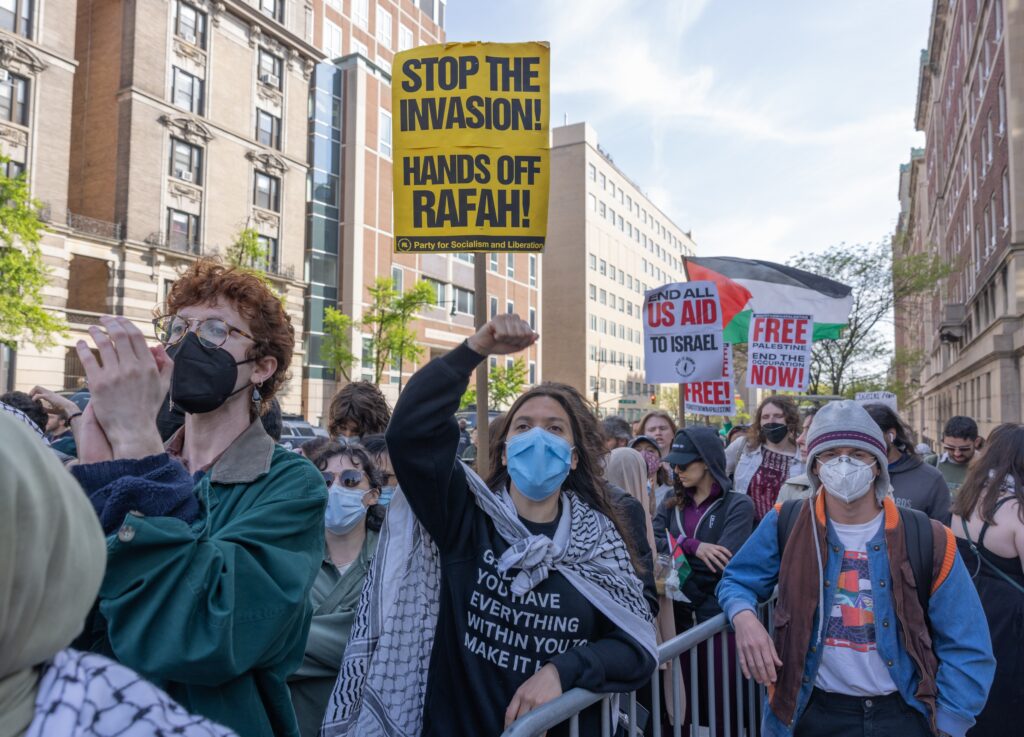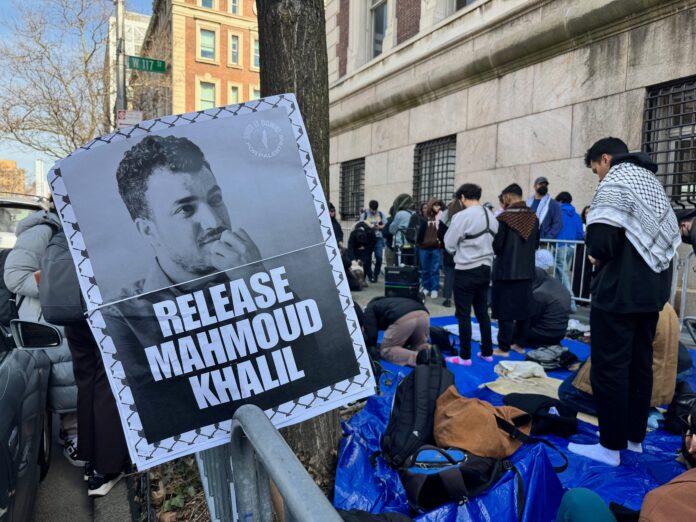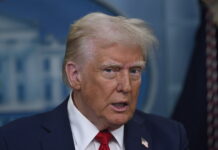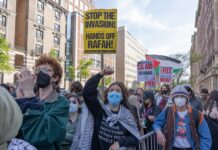Mahmoud Khalil, the Columbia University student who led pro-Palestinian rallies and is now fighting the Trump administration’s efforts to deport him, has called his arrest by immigration authorities an “abduction.”
He made the claim in an op-ed published in the Columbia Spectator, a student newspaper.
He addressed the letter to “Columbia — an institution that laid the groundwork for my abduction — and to its student body, who must not abdicate their responsibility to resist repression.”
“Since my abduction on March 8, the intimidation and kidnapping of international students who stand for Palestine has only accelerated,” Khalil said in the opinion piece.
He named other students who have been arrested and are facing deportation, including Tufts University doctoral student Rumeysa Ozturk.
“The situation is oddly reminiscent of when I fled the brutality of Bashar al-Assad’s regime in Syria and sought refuge in Lebanon,” Khalil said.
He also called out the role of Columbia University in the acceptance of the genocide in Gaza, placing the blame on the institution alongside “Zionist settler colonialism.”
Subscribe to our newsletter and stay updated on the latest news and updates from around the Muslim world!
“In the 18 months since the genocidal campaign in Gaza began, Columbia has not only refused to acknowledge the lives of Palestinians sacrificed for Zionist settler colonialism, but it has actively reproduced the language used to justify this killing,” Khalil said.
“Columbia has suppressed student dissent under the auspices of combating antisemitism,” he wrote.
Last week, Secretary of State Marco Rubio said over 300 international student visas had been revoked, saying: “Every time I find one of these lunatics, I take away their visas.”
Who is Mahmoud Khalil?
Mahmoud Khalil is a Palestinian activist and former graduate student at Columbia University in New York City, known for his prominent role in pro-Palestinian protests on campus in 2024.
Born in Syria to Palestinian refugees, Khalil moved to the United States in 2022 to pursue a master’s degree at Columbia’s School of International and Public Affairs.
He became a lawful permanent resident of the U.S. with a green card and is married to an American citizen.
During the 2024 protests, Khalil emerged as a key figure, acting as a lead negotiator for the student group Columbia University Apartheid Divest, which demanded the university divest from financial ties to Israel and call for a ceasefire in Gaza.
He was noted for his public presence, often speaking to the media and negotiating with university administrators, unlike many peers who masked their identities to avoid repercussions.
His activism drew both support and criticism — some praised his advocacy for Palestinian rights, while others, including the Trump administration, accused him of supporting Hamas, a U.S.-designated terrorist organisation, though no evidence of material support has been publicly detailed.

On March 8, 2025, Khalil was arrested by U.S. Immigration and Customs Enforcement (ICE) agents at his university-owned apartment in Manhattan.
The agents initially claimed to be acting on a State Department order to revoke a student visa, but upon learning he held a green card, they stated that status was also being revoked.
He was transported to a detention facility in Jena, Louisiana. The arrest followed President Donald Trump’s pledge to deport foreign students involved in pro-Palestinian campus protests, with Trump calling Khalil’s detention “the first of many to come.”
The Department of Homeland Security alleged Khalil “led activities aligned to Hamas,” though specifics remain unclear.
Khalil’s legal team has challenged his detention, arguing it violates his First Amendment rights to free speech and due process, as he has not been charged with a crime.
A federal judge in New York temporarily blocked his deportation in March 2025, and he remains in detention in Louisiana while his case progresses, with legal proceedings ongoing in federal courts.
Columbia University has not confirmed whether a warrant was provided for Khalil’s arrest at his university-owned apartment, nor has it it directly addressed his detention in subsequent official communications.
Interim President Katrina Armstrong expressed “distress” and later “heartbreak” over the presence of federal agents in university housing, but her statements avoided mentioning Khalil by name or taking a stance on his case, focusing instead on general support for students via a planned town hall on March 12, 2025, to help them “navigate” the situation.
Critics, including students and faculty, have accused Columbia of complicity or capitulation.
Reports suggest the university warned international students to avoid Gaza-related activism and may have shared information with authorities, though Columbia denied inviting authorities onto campus.























